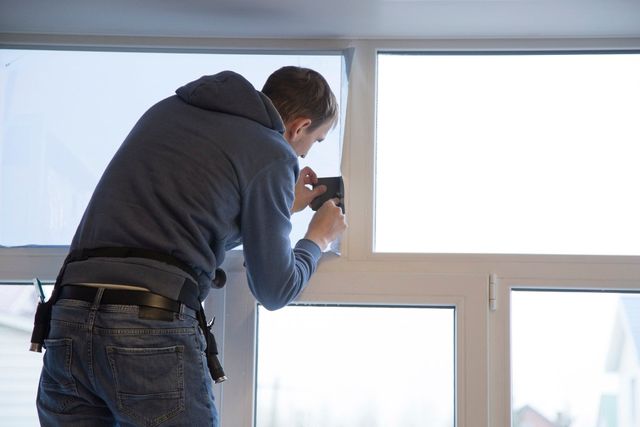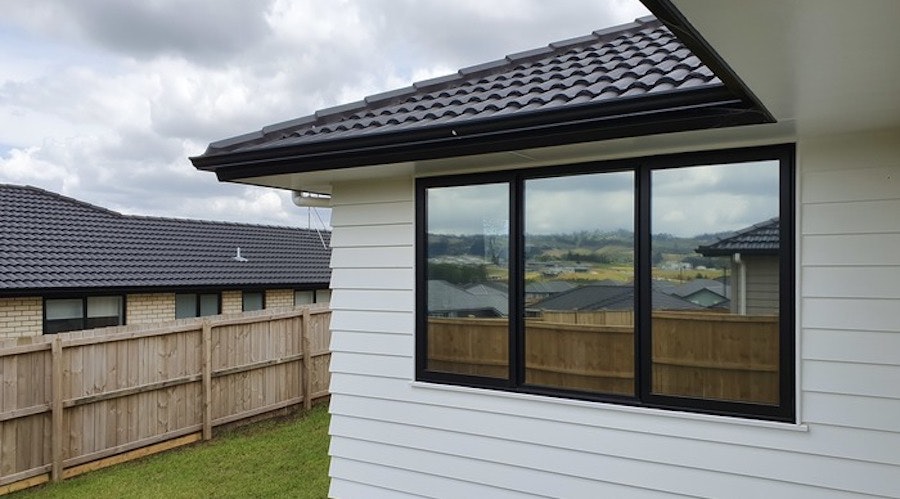Just How Residential Window Tinting Boosts Your Home's Energy Efficiency
Residential window tinting provides a compelling solution for house owners seeking to improve energy performance within their living areas. By using specialized films to home windows, it properly lowers heat transfer, consequently maintaining interior temperatures and minimizing the requirement for excessive home heating or cooling.
Recognizing Home Window Tinting
Recognizing window tinting is vital for house owners looking for to enhance both comfort and power effectiveness in their home. Residential Window Tint. Home window tinting involves the application of a thin film to the inside or outside surface area of glass windows. This movie can dramatically regulate the amount of sunshine and heat that enters a home, therefore affecting interior climate problems
There are numerous kinds of window tinting movies readily available, each with distinctive residential properties. As an example, dyed movies take in solar power, while reflective movies deflect it away from the glass surface. Ceramic films provide an equilibrium of presence and warmth rejection, making them a prominent choice amongst homeowners. The efficiency of window tinting is usually determined by its Visible Light Transmission (VLT) portion, which suggests just how much light can go through the film.
Benefits of Energy Efficiency
Window tinting not just enhances aesthetics yet likewise plays a significant function in improving energy performance within residential areas. By lowering warm transfer with windows, tinted films create a much more stable interior climate, which can result in substantial decreases in power consumption for heating and air conditioning. This power effectiveness equates right into reduced energy bills, offering property owners with significant long-lasting savings.

In addition, window tinting boosts the convenience of living areas. By lessening glow and blocking damaging UV rays, colored windows create a more pleasant environment, which can lead to improved wellness for residents. The defense versus UV rays additionally helps preserve furniture and floor covering from fading, contributing to the durability of home things.
Just How Tinting Functions
Tinting movies operate with a combination of advanced products and modern technologies created to regulate the amount of solar power entering a home. Mainly composed of polyester, these films frequently integrate metal or ceramic bits that soak up and show warmth. This dual capacity permits them to considerably reduce the infiltration of ultraviolet (UV) rays and infrared radiation while permitting noticeable light to travel through.
The performance of window tinting is measured by its solar warm gain coefficient (SHGC), which shows exactly how much solar energy is transferred through the home window. Lower SHGC worths are better as they denote better heat denial. In addition, go right here home window colors can feature a variety of tones, allowing property owners to personalize their aesthetic preferences while enhancing energy performance.
Moreover, these films serve as an obstacle, stopping warmth loss during colder months by reflecting indoor heat back into the home. This thermal insulation impact matches the air conditioning advantages acquired during warmer months, adding to a well balanced interior environment year-round. By handling solar power properly, residential window tinting not only enhances comfort however also plays an essential role in lowering power intake and lowering energy costs.
Picking the Right Color

There are various kinds of window movies offered, consisting of colored, metalized, and ceramic. Ceramic movies offer outstanding warmth control without endangering exposure and are very long lasting, making them a preferred choice.
Visible light transmission (VLT) is one more critical variable, as it suggests the quantity of all-natural light that can pass via the tinted glass. House owners must select a color with a VLT that matches their illumination choices while still offering ample glow decrease.
Furthermore, analyzing the solar warm gain coefficient (SHGC) can assist establish how well a color can block warm from sunlight. A lower SHGC indicates far better heat control, ultimately enhancing energy efficiency.
Setup and Maintenance Tips
Appropriate installation and maintenance are essential components in making the most of the advantages of residential home window tinting. To attain optimum results, it is suggested to work with a certified professional for installation. This ensures that the color is used properly, staying find out here now clear of air bubbles, wrinkles, or imbalance that can compromise efficiency. Experts additionally utilize specialized devices and techniques, which can improve the sturdiness and performance of the tint.
Adhering to installation, maintenance is vital to extend the life of the home window movie. It is advised to wait at the very least one month prior to cleansing the colored home windows to allow the glue to heal fully. When cleansing, use a soft towel and a gentle, ammonia-free cleaner to stay clear of harming the movie. Stay clear of abrasive materials that might damage the surface area.
In addition, routine examinations are useful. Check for any peeling or bubbling, which can indicate incorrect installation or put on gradually - Residential Window Tint. Addressing these concerns promptly can prevent more damage and keep energy efficiency. By sticking to these installment and maintenance suggestions, homeowners can ensure their home window tinting proceeds to give substantial power savings and comfort for years to come.
Final Thought
In verdict, household window tinting offers as an effective service for boosting power efficiency within homes. By minimizing warmth transfer and blocking harmful UV rays, window films contribute to reduce energy intake and improved indoor convenience.
Home window tinting involves the application of a thin film to the interior or outside surface area of glass windows. By reducing heat transfer through home windows, tinted movies create an extra stable interior environment, which can lead to considerable reductions in power usage for home heating and cooling.The effectiveness of window tinting is measured by its solar warm gain coefficient (SHGC), which suggests exactly how much solar power is sent through the home window. By taking care of solar power properly, residential window tinting not only enhances convenience but also plays a vital why not try these out duty in minimizing energy consumption and decreasing utility expenses.
By minimizing warm transfer and obstructing hazardous UV rays, window movies contribute to reduce energy consumption and enhanced indoor comfort.